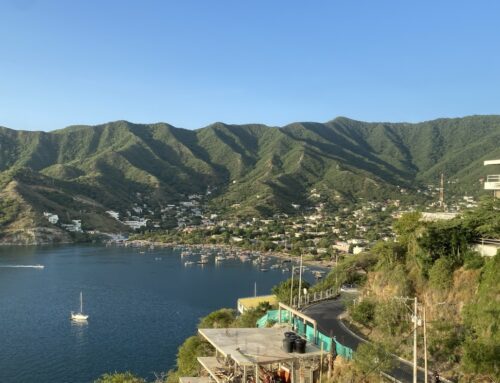ALEC Pushes Power Grid “Stability” Bills to Favor Fossil Fuels Over Renewables
November 12, 2025
Fueled by nearly $450 million in campaign cash from the fossil fuel industry, the Trump administration and congressional Republicans have moved rapidly to grant the industry its wish list, slashing tax incentives for renewable energy sources, gutting environmental protections, and appointing Trump loyalists and climate denialists to oversee the nation’s energy and environmental policies and regulations.
At the same time, industry-backed groups like the American Legislative Exchange Council (ALEC) have moved aggressively to ramp up the use and extraction of fossil fuels and impose new obstacles to the development of solar and wind power under the pretext that they are unreliable sources of energy.
This past legislative session, at least 15 “grid reliability” and “grid stability” bills based on ALEC model policies were introduced in statehouses across the country.
Founded in 1973, ALEC brings corporate lobbyists and state legislators together behind closed doors to develop industry-friendly model legislation. For half a century, it has played a leading role in promoting the fossil fuel industry’s interests at the state level, while also disseminating disinformation about the climate crisis. Each legislative session, hundreds of bills filled with language identical to that found in ALEC model policies crop up at the state level.
ALEC’s Energy, Environment, and Agriculture task force, which developed its “grid reliability” and “grid stability” bills, is led by both a legislative and a corporate chair. Matthew Kiessling, managing director of state affairs at the trade organization American Gas Association, currently serves as the corporate chair.
An analysis by the Center for Media and Democracy (CMD) found at least eight bills introduced this year in five states that all appear to originate from one model bill known as the Electric Generation Facility Closures and Reliability Act (EGFCRA). Seven other bills introduced in six states are based on three ALEC model bills that also focus on so-called grid stability or reliability.
ALEC first introduced EGFCRA in July 2022 to prevent states from closing power plants by requiring prior approval from a commission. The bill stipulates that the commission cannot approve closures unless there’s evidence that doing so will yield cost savings for customers and will not result in an “insufficient amount of reliable and dispatchable capacity” or “adversely impact the dispatchability or reliability of electric service” to customers.
While right-wing, pro-corporate operatives argue that these measures are necessary to prevent energy shortages and maintain grid stability, in reality their goal is to prolong profits from fossil fuel dependence and delay any meaningful transition to renewable energy.
New research on the reliability of renewables is not only challenging the narrative that a “cleaner” grid is inherently less reliable. It’s also revealing how clean energy can actually make the grid less susceptible to climate risks and vulnerabilities.
A recent study published in Nature Energy suggests that power grids with more renewables are less vulnerable to blackouts, and that outages are less frequent, shorter, and impact fewer customers.
In contrast, severe weather events like Texas’ “Big Freeze” in 2021 and California’s historic heat wave in August 2020 showcase how fossil fuel infrastructure is vulnerable to both cold- and heat-related failures, which can result in major power outages at the height of a crisis.
“Some of this stuff is really sneaky,” notes Dave Anderson, policy and communications manager at the Energy & Policy Institute. People are “trying to define coal-fired power plants as this constantly running, totally reliable source of electricity,” he told CMD. But “when you look at the real world, coal plants catch on fire, piles of coal freeze. They’re just as prone to disaster [and] to the whims of the weather as most other energy sources.”
Earlier this year, at least eight bills modeled on EGFCRA were introduced in Arkansas, Arizona, Kentucky, Missouri, and Oregon. Arkansas Senate Bill 596 and Missouri Senate Bill 4 both passed and are now in effect, while Arizona House Bill 2527 and Arizona Senate Bill 1309 were ultimately vetoed by Governor Katie Hobbs (D). All four of these bills had at least one sponsor with a known affiliation with ALEC.
In a letter to the Arizona Speaker of the House, Governor Hobbs explained her veto of HB 2527 by noting that these types of bills “seek to disincentivize, deprioritize, or otherwise limit new renewable energy projects,” and “directly threaten Arizona’s energy workforce growth and the associated potential for lowered energy bills.”
In a press release following the veto, Arizona State Senator Frank Carroll (R), the Senate majority whip and ALEC-affiliated sponsor of the bill, criticized the governor’s veto as a “missed opportunity” to proactively address “poor decisions made to hastily advance a radical climate-change agenda at the expense of our citizens’ safety.”
ALEC “finalized” a second model policy bill, the Affordable, Reliable and Clean Energy Security Act (ARCESA), in September 2024. Like EGFCRA, the bill seeks to make it more difficult to expand the renewable energy sector as it requires that energy generation must be “readily available to meet energy demands 24/7.” It also features a definition of “green energy” that includes nuclear and natural gas, neither of which is typically considered green by the broader scientific community since they produce significant amounts of waste and air pollution.
An early version of the model bill passed in Ohio in 2023. According to documents obtained by the Energy and Policy Institute, a dark money gas advocacy group called The Empowerment Alliance (TEA) collaborated with Ohio state lawmakers on the idea for the legislation. In an email from July 2022, Ohio State Senator George Lang (R) told natural gas executive and reported leader of TEA Tom Rastin that he would be “leaving the ALEC convention with some model legislation to define on the ORC [Ohio Revised Code] that natural gas is clean energy.” The following summer, the ARCESA model bill appeared on ALEC’s website.
CMD found at least three bills introduced this session in Indiana, Louisiana, and Ohio that mirror precise language found in ARCESA. All three bills passed and are now in effect in those states.
Oklahoma Senate Bill 1003 lifted language from a third ALEC bill, the Affordable, Reliable, and Resilient Electricity Act (ARREA). Introduced in 2021 under a slightly different name, ARREA includes similar language around “reliability” and “affordability,” and requires that each state’s electric utility regulatory agency develop rules and procedures that essentially make it unfeasible to integrate renewable energy into the grid in any significant way. SB 1003 died in committee in the Oklahoma legislature.
All three of the model bills mentioned above were highlighted in the Essential Policy Solutions publication ALEC released last December, which laid out its policy priorities for the 2025 legislative session.
The fourth bill, “Only Pay for What You Get” Ensuring Reliable and Affordable Electricity Act, was not included in the most recent Essential Policy Solutions guide. However, after ALEC adopted it last year, it did inspire three bills this year in Missouri and West Virginia.
None of these bills passed, but they all would have mandated that existing electric generation plants must remain open unless proof is provided that a closure would not decrease the availability of “reliable” energy (which, according to right-wing definition, excludes renewables). Similar to the above-mentioned model policies, this legislation is intended to make it much more difficult to integrate renewable energy sources into a state’s energy grid by creating a “reliable” energy standard.
Just months before ALEC adopted its model policy, Isaac Orr and Mitch Rolling, who were then policy fellows at the Center of the American Experiment (a right-wing think tank based in Minnesota and a member of the State Policy Network SPN), wrote a model policy also known as “Only Pay for What You Get.”
Kelly Trombley, senior director of the policy team at the environmental advocacy organization Ceres, points out that solar and wind power are the cheapest forms of energy on the market. She also notes that legislating fossil fuels as inherently reliable or stable forms of energy amounts to “hiding risk in plain sight,” and that these bills “take away states’ ability to control their energy costs.”
None of the bills ALEC advocates “propose a winning political formula at a time when utility rates are skyrocketing,” Trombley told CMD.
Search
RECENT PRESS RELEASES
Related Post




